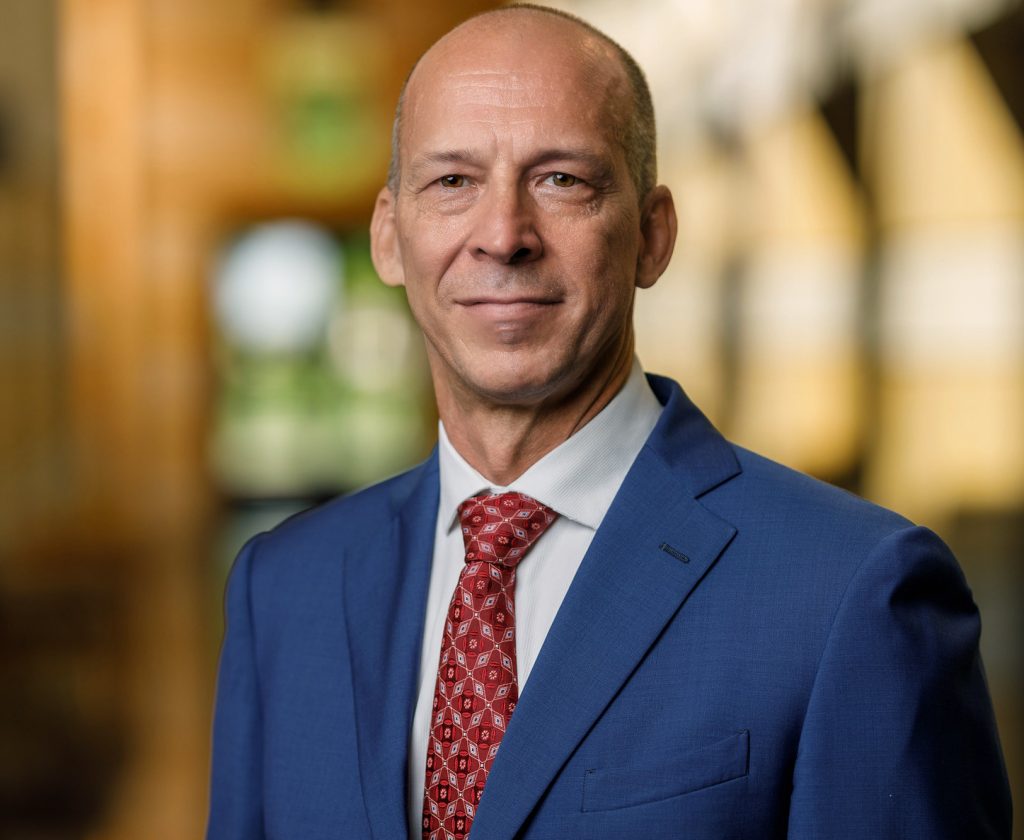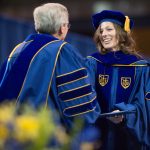The number of people worldwide requiring critical food aid reached a five-year high in 2020—at least 155 million—due largely to economic aftershocks from the pandemic, the United Nations said in a pair of reports issued on May 5 with other international groups.
Agricultural and resource economist Paul Winters, the Keough-Hesburgh Professor of Global Affairs, says that the pandemic has had especially devastating effects on farmers and those who make their living in agriculture.
“Agricultural goods have to be sold through the market, which requires social interactions,” said Winters, who joined the Keough School in August 2020. “Farmers don’t get paid every day—they get paid when they are harvesting and selling. Though the health consequences of the pandemic are obviously dramatic, we shouldn’t forget it also has strong economic consequences for farmers.”
Winters’ research and teaching has for decades focused on rural poverty and food insecurity, along with the policies and programs that address these issues. Before coming to Notre Dame, Winters worked for five years in Rome at the UN’s International Fund for Agricultural Development (IFAD), serving most recently as an associate vice president of the Strategy and Knowledge Department. Prior to his time in Rome, he spent more than a decade on the economics faculty at American University in Washington, DC, and also worked as an agricultural economist at the Inter-American Development Bank, the largest source of development financing for Latin America and the Caribbean.
Winters combines economic and policy expertise to help farmers adapt their production methods in an increasingly urbanizing world. When small-scale growers come together and connect with higher value markets, their products can provide pathways out of poverty. In Ecuador, for example, Winters analyzed a program that helped small potato farmers to organize and alter their agricultural practices to provide potatoes to snack manufacturer Frito-Lay, a division of PepsiCo. Frito-Lay makes their potato chips only with potatoes measuring five-to-nine centimeters and with a specific starch content, Winters said. Once producers are able to meet these standards, they can generate 15 to 20 percent more income by selling to a large corporation such as Frito-Lay.
Winters also has studied the gender gap between men and women farming in Nepal, analyzing the impact of increasing women’s access to high-value markets. Much of his current research focuses on food systems and seeks to identify means to transform them so they are inclusive of poorer producers, healthy and nutritious, and environmentally sustainable.
“Some of what the IPCC [Intergovernmental Panel on Climate Change] says should be done in agriculture concerns me,” Winters said. “When they call for zero deforestation, all of us want that from a climatic perspective, but zero deforestation can hurt small-scale producers if they are not provided with alternative economic opportunities. In the same vein, there are legitimate concerns about livestock from a sustainability perspective but animal proteins make for healthier kids in many settings, and livestock production is a valuable income generator for numerous households. We must act to transform food systems but we cannot address climate and nutrition concerns on the backs of the rural poor.”
Agriculture and sustainability need to be addressed simultaneously, not in isolation from one another, Winters said. “We need to balance economic opportunity for poorer populations with environmental and nutritional consequences. The measure of a great society is how we treat the poor, address their needs, and involve them in these important conversations.”
Winters was drawn to the Keough School not only because of Notre Dame’s Catholic mission, he said, but also because of the school’s focus on integral human development, which situates global development within a broad rather than solely economic approach. Since coming to Notre Dame, he has taught both master of global affairs students and undergraduates in three courses: Foundations of Sustainable Development, International Economics, and the policy lab course Designing Programs to End Hunger.
“In my development course, I keep getting behind in my lectures because the students ask so many questions,” said Winters. “It’s wonderful to have students who are so engaged.”


